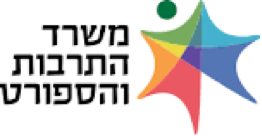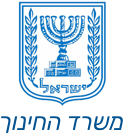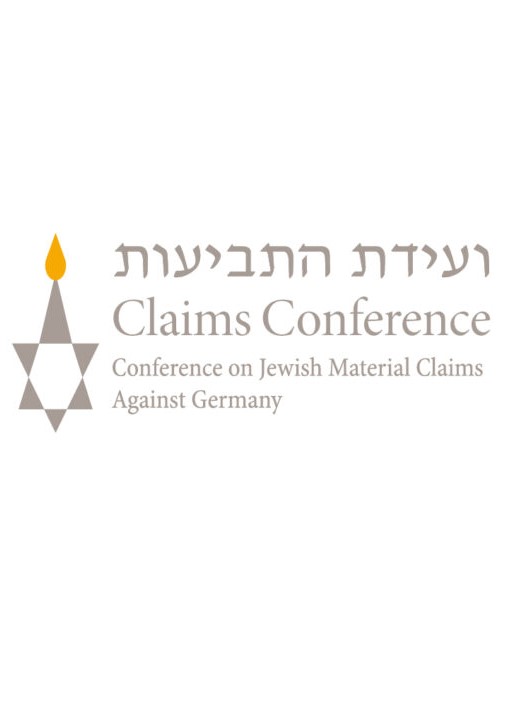A Zikaron BaSalon (Remembrance in the Living Room) event with Ganzach Kiddush Hashem and Rabbi Israel Meir Lau in Bnei Brak
There are events, however modest they may be, that leave an indelible mark; events whose content touches the heart forever.
This is how the participants of the Zikaron BaBayit (Remembrance at Home) evening felt. The event was held on the first Thursday of the Three Weeks (between the 17th of Tammuz and the 9th of Av) in the home of the chassid, Rabbi Yaakov Stern, owner of Meimad Advertising.
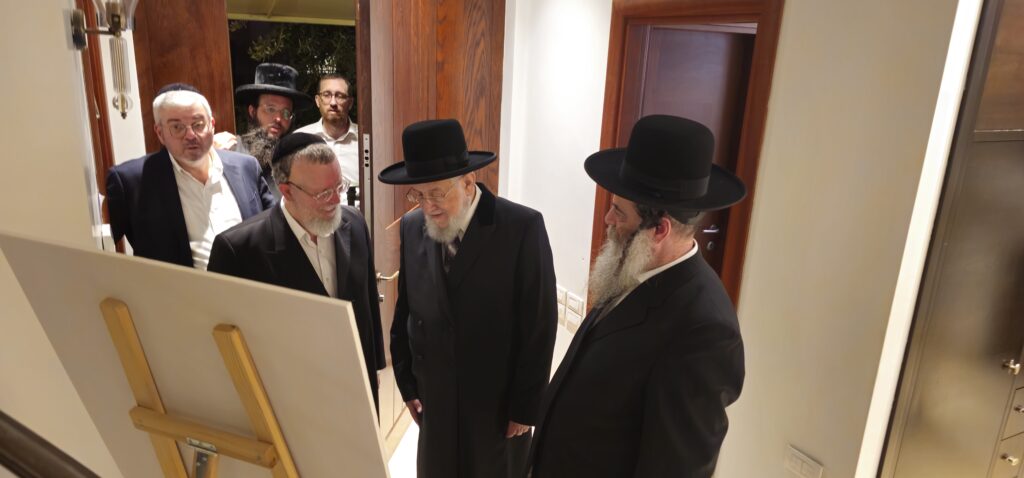
Rabbi Yaakov Stern, the lifeforce behind the Zikaron BaSalon initiative for the ultra-Orthodox sector, is a child of Holocaust survivors, and the sense of mission that drives his many years of voluntary activity is one: remember, do not forget!
The purpose of the emotional meeting, which was attended by senior journalists and members of the media, was to mark the opening of the Zikaron BaSalon meetings in the ultra-Orthodox sector for this year, which are now in full force, during Bein HaMetzarim (the Three Weeks), in which Jews sit and mourn the destruction. The Honorable Chief Rabbi, Rabbi Israel Meir Lau, Chairman of the Presidency Council of Ganzach Kiddush Hashem, one of the most famous survivors of the Holocaust today, graced the entire event with his presence and was thankful for it. His words amazed the audience, and left them deep in reflection and thought.
Almost eighty-five years have passed since the outbreak of the Holocaust. Eighty years, almost, since the liberation of the camps and ghettos by the Allied Forces. Many Holocaust survivors still live with us, while many Holocaust survivors have already passed away, many of which told their stories and recorded their memories for the future generations, yet still, the feeling is that the story of the Holocaust is not properly passed on to future generations.
The MC for the evening, known media personality, Avi Mimran, did well to express the matters from his point of view as someone who grew up in the neighborhoods of Jerusalem and was educated in its institutions. According to him, everyone knew about the Holocaust, and saw the survivors everywhere. They got to know them, appreciate them, and shudder from their stories, from the trauma etched in their hearts. However, the events of the Holocaust were hardly discussed, neither in the cheders nor in the yeshivas, in an orderly manner. They did not talk about the correct, Torah view of the Holocaust and its events, nor about its history.
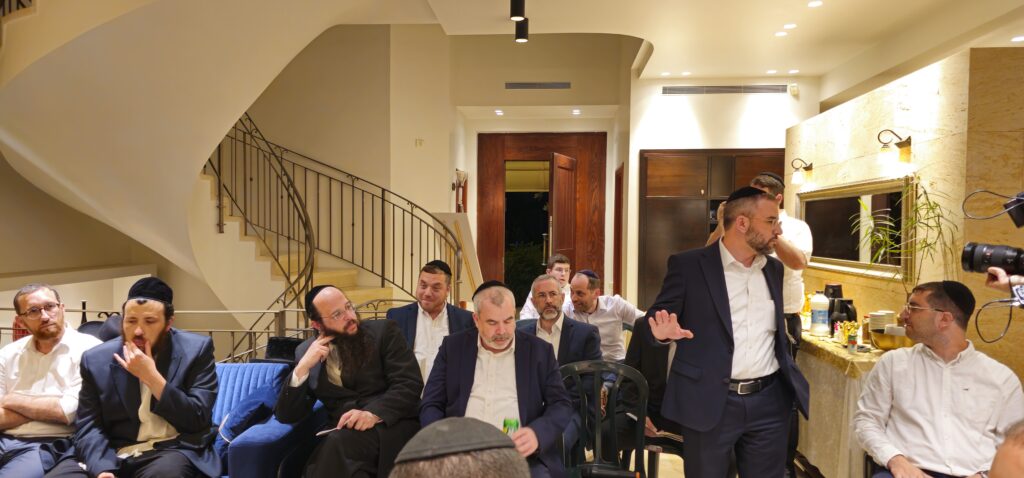
The one who immigrated to the Land of Israel as a boy, orphaned of his father and mother, a boy whose eyes saw horrors in the camps, and with a will as strong as steel started life anew and did not sink into the depths of memories and grief, until he was able to reach where he had reached; this refers to the revered guest Rabbi Lau. Listen to his words in full.
Indeed, I studied in the Kol Torah Yeshiva. Some of my ramim (homeroom rabbi teachers) were Holocaust survivors. I studied at the Ponevezh Yeshiva. I was close to the Ponevezher Rebbe, who was a man who saw “affliction in the rod of His wrath” (Lamentations 3:1), a man of vision and action, with the memory of the Holocaust burning in him, but never spoke in the yeshiva about the Holocaust. I was close to all the ramim in Ponevezh, some of them also Holocaust survivors. I was close to my friends in yeshiva, the Holocaust survivors, but none of them spoke, certainly not in public.
Rabbi Lau remembered Ponevezh’s long-time prayer leader, Rabbi Moshe Portman. He is the one who coined the form of the prayer in the holy Yeshiva. The prayer tore hearts. Rabbi Portman was a remnant of Lithuanian Jewry who studied in its yeshivas, and after going through the Holocaust he served as a prayer leader in the Ponevezh Yeshiva during the High Holidays. He is the one who brought the tunes of the prayers from the towns of Lithuania to the holy yeshiva in Israel.
Rabbi Portman also did not speak nor tell.
“Why didn’t they speak about it?” the MC asked Rabbi Lau.
“I do not know.”
“Why didn’t they speak? First of all, becuase this is painful! I was a child then; it was easier for me to speak”
And this is exactly the space that Ganzach Kiddush Hashem has been filling for over fifty years.
Those who did not speak, out of pain, trusted the ones who did. They trusted Rabbi Moshe Prager, whose last name was originally “Mark,” and trusted Ganzach Kiddush Hashem which does extraordinary, holy work.
Ganzach Kiddush Hashem has managed to do what many good people tried and failed to do. They “revived the dry bones.” They gave form and life to the Holocaust victims and its silent survivors. They created a place to commemorate this terrible story that we must not forget – remember, do not forget!
In addition to Rabbi Lau’s words, Deputy Minister and MK Rabbi Uri Maklev, who serves as the chairman of the Authority for Holocaust Survivors in the Prime Minister’s Office, delivered an emotional speech.
Rabbi Maklev also spoke about the silence of Holocaust survivors that he saw in his youth. He too, as a yeshiva boy, in cheder, and in the other stages of his early life, together with his friends, grew up around Holocaust survivors, saw Holocaust survivors in every synagogue and in every alley; everyone knew that they had gone through hell and had lost everything dear to them.
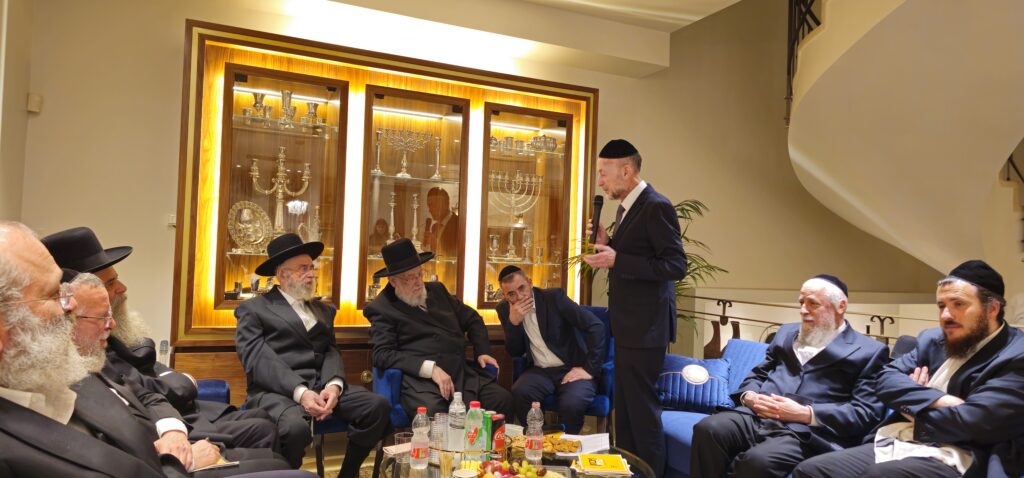
Rabbi Maklev emphasized the goal facing those doing the work, in light of the advanced age of the Holocaust survivors. He brought statistical data from reports compiled in his office about the number of Holocaust survivors today, the number of deaths among them each day, and more. In his words, he revealed the interesting statistic that was recently proven: Holocaust survivors live longer than the rest of their peers who did not go through the horrors of the Holocaust. Whatever the reason, there is no denying that this data should inspire us to come to our senses to stand by the Holocaust survivors, both simply to be with them and support them, and to hear the stories that not everyone have told yet.
Akeida (a bound sacrifice), not Shoah (Holocaust)!
From the emotional words of the Honourable Chief Rabbi Israel Meir Lau:
I remember, dozens of years ago, I was, along with Rabbi David Skulsky, one of the founders of Ganzach Kiddush Hashem, at the eulogy for Rabbi Moshe Prager z”l. Rabbi Pinchas Menachem Alter z”l, known as the “Pnei Menachem” of Ger, who at the time served as the head of the Sfat Emet Yeshiva, said then: What is the point of calling it “Shoah?” And every time “Shoah” is written in Tanach (Torah, Prophets, Writings) – the word appears in connection with wicked people and evildoers, and not to martyrs thrown into the fire; all of them were holy and pure and were sacrificed in sanctification of G-d’s Name, because of one reason: that they were Jews! I suggest, said the Rebbe, to call it “Akeida.” Indeed It was an akeida – a sacrifice. Six million Israelites were sacrificed for the sanctification of G-d’s Name.
Since then, I have a hard time with the term “Shoah.” I prefer that this terrible period of time be called “Akeida,” as the Rebbe suggested.
When I wrote my book “Al Tishlach Yadcha Al HaNaar” (Do Not Send Forth Your Hand Against the Boy – translation of the Hebrew title. The English version of the book is titled “Out of the Depths”), the publishers argued about the strange name that I chose. “Do Not Send Forth Your Hand Against the Boy” – such a long name, a name that most likely will not “sell.” And this book was a great success. It sold a lot, and was translated into ten languages. The Chinese were the first to translate the book into their language, followed by the Japanese.
Yes, I insisted on this name, and why? Because there is no doubt that G-d said, “Do not send forth your hand against the boy.” I don’t know to whom and through whom, but surely He said it, otherwise, how was I saved from death, how did I survive?
My father and mother, my brothers, and my sisters were taken to death, and me and my brother Naftali were saved. Who guarded me, how was I saved? Is it not because G-d was standing over me and warned the one who needed to be warned, in what way he needed to be warned: “Do not send forth your hand against the boy”?
Not everything is told in the book. There are things I have never told before. Every now and then they come to my mind and I reflect on them.
I was in Buchenwald with my brother, Naftali. Naftali was eleven years older than me. Naftali carried me on his shoulders in a sack…from Czestochowa. He was eighteen years old. He warned me: “be quiet.” And I, as a young boy, understood it all.
When we arrived in Buchenwald, they took everything from us. Into a big fire they threw all of our posessions and clothes. This action was necessary, according to them, to prevent infection with the diseases that infected us.
I remember my brother whispering into the sack, “Lulek, come here.”
I came out of the sack and the first thing that I saw – the big fire, burning in front of my eyes. I don’t know how it was possible, but thank G-d, I was separated from Naftali who was thrown into the Jewish barracks. I stayed in Block 8 – the POW block.
My brother, like the rest of the Jews, and among them was the famous author, Elie Wiesel, were house in a crowded barrack, 14 people per bunk, and I, in the POW block, merited to have a “mattress.”
To describe to you how 14 people feel on a bunk, after a hard day’s work? I think there is no need. Sticking to the people moving together, according to the rhythm of the movements of each one of them who has to turn to the side or go up or down… this is what happened to my brother.
And I, who merited a mattress, had some Russian fellow who took care of me. How? Why? One reason. “Do not send forth your hand against the boy!”
We arrived in Buchenwald in the winter. One day, at the end of the day, when Naftali returned to his barrack, he threw a potato at me. “Take care of it!” he cried out. This was been the case many times since then. He would throw potatoes at me and warn me to be careful. I didn’t understand why he didn’t eat, and he hardly ate anything, my brother, and why didn’t he take care of his health?
So from time to time, Naftali would throw potatoes at me and tell me: “keep it in the mattress.”
I, when I separated from my father, was a small child. I knew nothing. I only spoke Polish. I remember myself sitting on my father’s lap as he sat on his chair. I remember myself in his rabbinical court, sitting on his lap and curling his sidelocks.
My father did not for a moment think of running away, even though he could. He said: “I am a community rabbi and will go walk the last path with them. He walked at the head of his community with a Torah scroll in his arms.
I remember my mother, during the war, she ran a charity kitchen and I would help her peel, prepare, and transport dishes here and there. My mother was a woman of kindness and she saved many people during the days of wrath.
But my parents were taken away from me when I was a tender child, and I knew nothing. Only after we met again, I asked Naftali, why he didn’t eat, why he threw potatoes at me, and these were precious; they were pieces of “life” in the Valley of the Shadow of Death.
Naftali then answered me patiently. He told me about Passover. He explained to me what chametz (leaven) is and what matzah is, what is kosher and what is not, what is forbidden and what is permitted, he told me about the exodus from Egypt and the Seder night.
Do you understand?
My brother Naftali would trade with the meager slices of bread he received. He traded them for potatoes in the underground market that developed in the barracks. He starved for days so that he could keep a kosher Passover, lest he starve to death on the holiday.
Where could Naftali bury the potatoes? I had a mattress, so he threw these treasures at me…
This is, for example, a story that I did not tell in the book.
What can I tell about? Rabbi Lau asks in a broken voice.
Each moment there, it is history. My mother, may G-d avenge her blood, who sent food for the needy from the ghetto. I remember myself on a Friday night peeling carrots and potatoes. What did she call her charity? “Bethlehem!”
How much can be said about my father, may G-d avenge his blood.
Ganzach Kiddush Hashem permeated the consciousness of the Holocaust; it spread the stories, the testimonies. Lest they be forgotten, lest they disappear into the abyss of the forgotten. Ganzach Kiddush Hashem did this in times when no one had yet spoken or told about the Holocaust, and it is also thanks to it that there is such a large database of testimonies for the knowledge of the future generations.
A shiver went through the crowd, when the rabbi told about a woman, may G-d avenge her blood, that the murderer Mengele sent to the left side, and her cries of “Mohel” (circumsizer) pierced the long line.
In the parallel row stood her husband.
No one knew what she wanted and why she was screaming, and maybe she had lost her mind. However, her words were quickly understood. “Mohel!” Cuddled in her lap was a tender Jewish boy born a few days prior. She knew what they were going towards and wanted to return a circumsized child to G-d. A kosher, pure, and elegant sacrifice. She was looking for a mohel that would circumcize her son before he ascended, with holy and pure virtues…
In light of the rabbi’s words, no one remained indifferent in the audience, which included journalists, writers, rabbis, intellectuals, and businessmen, from all shades of the Jewish spectrum in Israel.
Rabbi Yaakov Stern, Mr. Moshe Klughaft, the journalist Ms. Shoshana Chen and the writer and activist Ms. Orit Mark from Otniel, author of the bestseller “Keren Or Shvura” (Broken Ray of Light), gave speeches later.
Ms. Michal Lipman spoke on behalf of the Zikaron BaSalon project.
Words from Ganzach Kiddush Hashem were presented by COO, Mrs. Rachel Yud, who said as follows: The days of Bein HaMetzarim are days of remembrance that grow stronger as we get closer to Tisha B’Av. Therefore, it is fitting that we gather on these days and remember the terrible Holocaust, the stories that were told here, and many others, and from our experience – the public is thirsty to participate and hear them.
The Story of a Photograph
Finally, despite the late hour, Rabbi Lau asked to end with a personal story that he experienced a few years ago.
It was during the visit of the President of the United States at the time, Donald Trump, to Israel. The schedule of the visit was tight, and the organizers who tried to include a tour of Yad Vashem were met with refusal by the guest. The visit is short, and it is not possible to include Yad Vashem in it as well.
They tried every way, cut times, dropped plans, until the organizers were able to arrange a short visit to Yad Vashem.
Walking around Yad Vashem where Donald Trump, the leader of the free world, accompanied by Prime Minister Mr. Binyamin Netanyahu. President Trump looked at the exhibits, testimonies, films, and everything the large and well-invested museum has to offer, but no excitement or admiration was visible on the man’s face. Every now and then he let out a hum, that’s all.
Towards the end of the visit, the last display that was revealed to him was the picture of the little Jewish boy standing in the liberated Buchenwald among the American soldiers.
Mr. Netanyahu pointed to the picture and to me and said to the guest: “This boy is the chief rabbi, who is here with us!”
Netanyahu turns to me and asks me in English: “How many grandchildren do you have, Honorable Rabbi…” and I answer him: “Sixty!”
And Donald Trump looks at me in amazement, at me and at the picture, and suddenly a scream of surprise and admiration came out of his mouth: “Wow!”
Netanyahu turns to me again and asks me, “how many great-grandchildren do you have?”
“I don’t know.” (I’m not counting anymore, and also, it can change daily…)
And then again, Trump, looks at me, amazed, excited, and blurts out: “Wooowww!”
